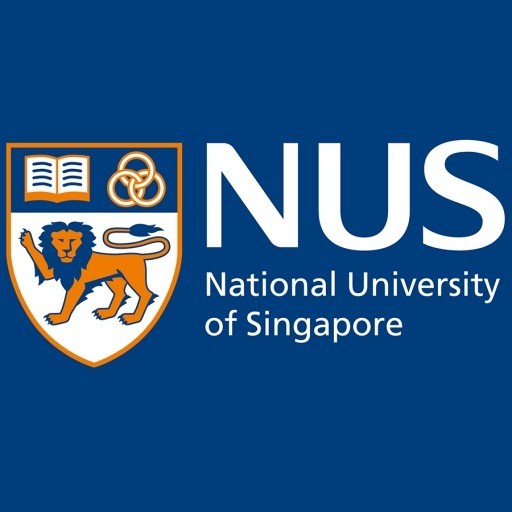Photos of university / #nus_singapore
The Bachelor of Arts in Global Studies at the National University of Singapore offers a comprehensive interdisciplinary education designed to equip students with a nuanced understanding of global issues and dynamics. This program aims to develop critical thinking, analytical skills, and cultural awareness necessary for tackling complex challenges in an interconnected world. Students engage with topics spanning international relations, global economics, cultural studies, development, security, and environmental sustainability. Through a combination of coursework, research projects, and experiential learning, students gain practical insights into global processes and policies. The curriculum is structured to encourage interdisciplinary perspectives, integrating insights from history, political science, sociology, anthropology, and economics. Emphasis is placed on fostering a global mindset and cross-cultural competence, preparing graduates for careers in international organizations, government agencies, NGOs, academia, and the private sector. The program also promotes active engagement with current global affairs through seminars, workshops, and partnerships with international institutions. Students have opportunities to undertake internships and study abroad programs, enhancing their practical experience and intercultural skills. Mentorship and research opportunities support individual academic development and specialization within areas of interest. Graduates of the Bachelor of Arts in Global Studies emerge well-equipped to contribute thoughtfully and effectively to addressing global challenges, with a solid foundation in theory, method, and practice. The program’s rigorous academic environment at NUS ensures students are prepared for leadership roles in a diverse and rapidly changing world, fostering responsible global citizens committed to sustainable development and international cooperation.
Pass GL1101E Global Issues. This will be counted towards the Faculty Core or Unrestricted Elective Requirements
|
Pass at least 52MCs of GL modules or GL-recognised non-language modules and 16MCs of Language Requirement (using the modular credits from the Unrestricted Elective Component) which include the following: |
|
GL2101 Origins of the Modern World |
|
GL2102 Global Political Economy |
|
GL2103 Global Governance |
|
GL3101 Inquiry & Method |
|
a minimum of 16MCs from ONE of the following themes (See Note 1): |
|
Business & Transnational Cultures |
|
Colonialism & Post-Colonialism |
|
International Communications |
|
Global Economics & Development |
|
Global Health & Environment |
|
Policy Making |
|
Population & Migration |
|
Religion & Ethnicity |
|
Technology & Globalisation |
|
War & Security |
|
a minimum of 16MCs from ONE of the following regions: |
|
East Asia: China, Japan and Korea |
|
Southeast Asia |
|
South Asia |
|
Europe |
|
Americas |
|
a minimum of 16MCs in a single language (Classified under Unrestricted Electives) (See Note 2) |
|
* Please refer to the Centre for Language Studies for languages offered. |
|
* Language has to be relevant to the Theme and/or Region Components. |
|
* Students with prior knowledge in a language and place in high are encouraged to read another language to fulfill the major requirements where there is a clear line of progression. |
|
* Modular credits waivers/exemptions for the language requirement are not awarded for GL majors. |
|
a minimum of 20MCs of L3000 or higher GL or GL-recognised non-language modules (including GL3101) (See Note 3) |
|
|
|
Students who demonstrate strong interest in a topic that is outside of the ten themes may design their own theme in consultation with an academic advisor. |
|
While this is a major requirement, the 16MCs of language modules will be classifed under the student's Unrestricted electives which is on top of the 52MCs required for the major |
|
Students are allowed to read L4000 modules subject to departmental approval. |
- High School Graduation Certificate and transcript
- ACT with Writing / SAT and SAT Subject Tests
- Completion of online application
- Payment of Application Fee (S$20)
- Application Checklist
- National level High school examination results slip (if applicable)
- School examination results slip e.g. Year 11 High School transcripts/ SPM/ IGSCE/ Indian Standard 10
- University academic transcripts (only applicable to applicants applying for 3-year Law Programme)
- Additional results slip (if scores are indicated in application form) e.g. IELTS, TOEFL, SAT and SAT Subject Test scores, AP, ACT etc.
- Passport / Birth Certificate / Identification Card (clearly reflecting your Full Name and Date of Birth)
- Medical report(s) if you have or had any illnesses or disabilities (if applicable)
- Criminal record(s) (if applicable)
The financing of the Global Studies program at the National University of Singapore is primarily supported through a combination of tuition fees paid by students, government subsidies, and scholarship opportunities. Tuition fees for local students are structured to be affordable and are reviewed annually to reflect inflation rates and institutional funding policies. For international students, fees are generally higher to cover the additional costs associated with international recruitment and support services. The university offers various scholarships based on academic merit, leadership qualities, and financial need, including the NUS Financial Aid Scheme, which provides grants or loans to eligible students to offset expenses. In addition, students can access external funding sources such as government-sponsored scholarships from their home countries or international organizations. The university also encourages students to seek part-time employment opportunities on campus, which can help manage living and educational expenses. Funding for research projects associated with the program is obtained through grants from government bodies, private foundations, and industry partnerships, fostering a strong research environment. The university’s financial planning ensures the sustainability of the program by balancing revenue from tuition and grants with operational costs. Moreover, advanced students involved in research or internship projects may receive stipends or stipends supplemented by the university's research and development funds. Overall, the financing strategy aims to make the Global Studies program accessible to a diverse student body while maintaining high academic standards and supporting innovative research initiatives.
The Bachelor of Social Sciences with Honours in Global Studies at the National University of Singapore (NUS) is an interdisciplinary programme designed to provide students with a comprehensive understanding of global processes, issues, and challenges. This programme aims to develop students’ analytical skills, critical thinking, and cultural awareness, preparing them for careers in international organizations, government agencies, NGOs, academia, and private sector entities involved in global affairs. The curriculum covers a broad spectrum of topics including international politics, economics, culture, development, and environmental sustainability, emphasizing both theoretical frameworks and practical applications. Students are encouraged to engage in research projects, internships, and study abroad opportunities to enhance their practical knowledge and global perspective. The programme also promotes a multidisciplinary approach, integrating insights from political science, economics, sociology, and history to analyze complex global phenomena. Graduates of the programme are equipped to navigate and address global issues such as climate change, migration, conflict resolution, and sustainable development. The faculty comprises experts with diverse backgrounds in global policy, diplomacy, anthropology, and related fields, providing students with mentorship and networking opportunities. The university supports students through various resources, including research centers, libraries, and international partnerships, fostering a dynamic learning environment. Overall, the NUS Global Studies programme aims to produce well-rounded individuals who can contribute effectively to solving worldwide issues and fostering international cooperation.








